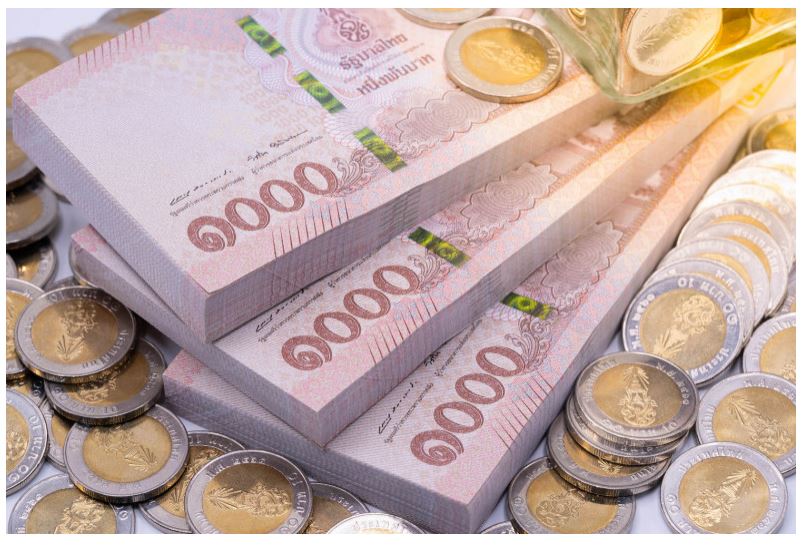Thailand: Baht has worst day in two weeks
The Thai baht led losses amid mixed trade in most Asian currencies on Tuesday, as US economic data pointed to sluggish growth in the country’s services sector, strengthening the case for a pause in interest rate increases by the Federal Reserve next week.
The baht weakened as much as 0.7% and was trading close to 34.80 to the US dollar, logging its worst session in two weeks. That came after the May headline inflation rate dropped to 0.5% year-on-year — its lowest in 21 months — due to lower energy and food prices and a high base in 2022.
“Given subdued inflation, we continue to expect the Bank of Thailand to keep its policy rate unchanged for the remainder of the year,” analysts at Goldman Sachs wrote in a note to clients.
The Bank of Thailand last Wednesday raised its policy interest rate by a quarter point to 2%. It will next review the rate on Aug 2.
Among other currencies, the Chinese yuan and the Malaysian ringgit weakened 0.5% and 0.1%, respectively. The Indonesian rupiah and Indian rupee, on the other hand, rose 0.4% and 0.1%, respectively.
The US services sector barely grew in May as new orders slowed, pushing the measure of prices paid by businesses for inputs to a three-year low. The US dollar was largely subdued following the disappointing data.
The dollar index fell to 103.85, after climbing as high as 104.40 in the previous session. A softer US dollar is a positive for emerging Asian markets as this could improve the balance of payments position while attracting capital inflows and reducing the foreign debt burden.
“The unexpected rebound in US CPI, an upward revision to first-quarter GDP, and somewhat resilient labour market prints still point to some risks that the Fed may adopt a hawkish stance” at the upcoming policy meeting, even if it skips a hike, said Frances Cheung, a rates strategist at Singapore-based Oversea-Chinese Banking Corp (OCBC).
In the Philippines, annual inflation slowed for a fourth consecutive month in May as food prices continued to ease, giving the central bank room to keep benchmark interest rates steady at its next policy meeting on June 22.
Bangko Sentral ng Pilipinas, however, projected an upside risk to inflation outlook for 2023 and 2024, citing supply constraints for key food items and the potential impact of the El Niño weather pattern on food prices and utility rates.
The Philippine peso recouped earlier losses to strengthen as much as 0.1%, while stocks in Manila slipped 0.1%.
In India, the central bank will announce its policy decision on Thursday. The Reserve Bank of India is expected to leave the repo rate unchanged at 6.50% after having surprised markets by holding rates in April.
Source: https://www.bangkokpost.com/business/2586234/baht-has-worst-day-in-two-weeks


 English
English




